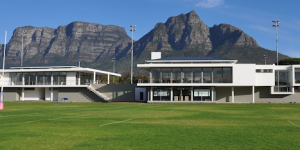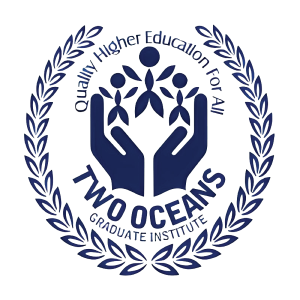The Essentials
Type of Institution: University
Fees per Year: R25 000.00 – R55 000.00
Address: Staatsartillerie Rd, Pretoria West, Pretoria, 0183, South Africa
Phone Number: 0800 233 725
Chancellor: Gloria Tomatoe Serobe
Vice Chancellor: Tinyiko Samuel Maluleke
Number of students: 60 000+
Email: enquiries@online.tut.ac.za
Website: https://online.tut.ac.za/
Table Of Contents
- Overview
- Contact Details
- Address
- Location
- School Fees
- Courses & Programs
- Vacancies and Entry Requirements
- Logo
- Notable Alumni
- Pros and Cons
- Author’s Review
Overview
Tshwane University of Technology (TUT) is one of the largest universities in South Africa, established in 2004 through the merger of three former technikons: Technikon Northern Gauteng, Technikon North-West, and Technikon Pretoria. TUT is a comprehensive university that focuses on providing career-focused and technology-driven education, preparing students for the job market and equipping them with practical skills.
Mission and Vision
TUT’s mission is to empower people and create knowledge to enhance socio-economic development in South Africa. The vision is to be a pioneering university of technology that inspires and advances knowledge and innovation for positive social and economic change.
Campuses
TUT has multiple campuses located across various regions, each serving different faculties and offering a range of programs:
Pretoria Campus: The main campus in the capital city.
Soshanguve Campus: Focuses on Engineering, ICT, and Management programs.
Ga-Rankuwa Campus: Home to Health Sciences programs.
eMalahleni Campus: Offers Business and Engineering programs.
Mbombela Campus: Provides courses in fields like Accounting, Education, and Business.
Polokwane Campus: Provides Education, Management, and Technology programs.
Research and Innovation
TUT is committed to research and innovation, especially in fields related to science, technology, and applied disciplines. The university focuses on generating solutions for local and global challenges, particularly in areas such as:
Sustainable energy
Health and medical sciences
Information technology and data science
Water management
Engineering solutions
The Technology Station Program, housed in various TUT faculties, enables the university to work directly with industries, transferring knowledge and technology to support local and regional economic development.
Community Engagement
TUT has a strong focus on community engagement, addressing socio-economic issues in the communities surrounding its campuses. The university collaborates with local organizations and stakeholders to provide training, research, and development projects aimed at improving local living conditions.
Student Support and Facilities
Student Accommodation: Available on most campuses, offering residences for students.
Sports and Recreation: TUT has a variety of sports facilities and teams, participating in national and international competitions.
Career Services: The university offers career counseling, internships, and employment placement services to assist students in transitioning from university to the workforce.
Libraries: Each campus has fully equipped libraries with digital and physical resources for research and study.
International Partnerships
TUT has numerous partnerships with universities and research institutions across the globe. These partnerships facilitate student exchanges, research collaboration, and opportunities for joint-degree programs.
Technology-Enhanced Learning
The university has embraced e-learning and technology-enhanced learning, allowing students to access learning materials, attend virtual classes, and complete assignments online. This approach is especially important for distance learning and flexible study options.
Tshwane University of Technology Contact Details
You can contact Tshwane University of Technology via their landline, email or you can visit their website for further contact details.
Phone Number: 0800 233 725
Email: enquiries@online.tut.ac.za
Website: https://online.tut.ac.za/
Tshwane University of Technology Address
Staatsartillerie Rd, Pretoria West, Pretoria, 0183, South Africa
Tshwane University of Technology Location
Tshwane University of Technology has 7 campus, their main campus is situated in the city of Pretoria under the Gauteng province of South Africa in Philip Nel Park on Staatsartillerie road.
Tshwane University of Technology Fees
Tshwane University of Technology’s fees is currently standing at R25 000.00 – R55 000.00 per year depending on the program you are studying and the level of degree you are studying. Please contact the institution or visit them to get the latest fees structure as it can change at any time.
Tshwane University of Technology Courses & Programs
Tshwane University of Technology (TUT) offers a wide range of undergraduate and postgraduate programs across its various faculties.
Faculty of Engineering and the Built Environment
Undergraduate Programs
National Diploma and Bachelor of Technology (BTech) in:
Civil Engineering
Electrical Engineering
Mechanical Engineering
Industrial Engineering
Chemical Engineering
Computer Systems Engineering
Metallurgical Engineering
Building Sciences
Architecture
Postgraduate Programs
Master’s and PhD in:
Civil Engineering
Electrical Engineering
Mechanical Engineering
Industrial Engineering
Chemical Engineering
Built Environment (Architecture, Quantity Surveying)
Faculty of Information and Communication Technology (ICT)
Undergraduate Programs
Diploma in Information Technology (Specializations in Software Development, Technical Applications, and Business Applications)
Bachelor of Information Technology
Bachelor of Technology (BTech) in IT
Postgraduate Programs
Master of Information Technology
PhD in Information Technology
Faculty of Science
Undergraduate Programs
Diploma and BTech in:
Analytical Chemistry
Biotechnology
Environmental Science
Food Technology
Mathematics and Statistics
Physics
Bachelor of Science (BSc) in:
Computer Science
Chemistry
Environmental Science
Postgraduate Programs
Master’s and PhD in:
Chemistry
Environmental Science
Physics
Biotechnology
Mathematics and Statistics
Faculty of Management Sciences
Undergraduate Programs
Diploma and BTech in:
Business Administration Management
Office Management and Technology
Public Management
Hospitality Management
Real Estate
Marketing
Operations Management
Logistics
Public Relations Management
Tourism Management
Postgraduate Programs
Master’s and PhD in:
Business Administration
Public Management
Marketing
Operations Management
Faculty of Economics and Finance
Undergraduate Programs
Diploma and BTech in:
Accounting
Internal Auditing
Cost and Management Accounting
Financial Information Systems
Economics
Postgraduate Programs
Master’s and PhD in:
Accounting
Internal Auditing
Cost and Management Accounting
Economics
Faculty of Humanities
Undergraduate Programs
Diploma and BTech in:
Language Practice
Journalism
Integrated Communication
Legal Assistance
Policing
Corrections Management
Public Relations Management
Postgraduate Programs
Master’s and PhD in:
Communication
Journalism
Language Practice
Legal Assistance
Faculty of Arts and Design
Undergraduate Programs
Diploma and BTech in:
Fine and Applied Arts
Fashion Design
Performing Arts
Photography
Graphic Design
Interior Design
Visual Communication
Postgraduate Programs
Master’s and PhD in:
Fine Arts
Visual Communication
Performing Arts
Graphic Design
Faculty of Health Sciences
Undergraduate Programs
Diploma and BTech in:
Biomedical Sciences
Dental Technology
Emergency Medical Care
Nursing
Radiography
Environmental Health
Pharmacy
Postgraduate Programs
Master’s and PhD in:
Biomedical Sciences
Radiography
Nursing
Environmental Health
Faculty of Education
Undergraduate Programs
Bachelor of Education (BEd) in:
Foundation Phase Teaching
Intermediate Phase Teaching
Senior Phase and FET (Further Education and Training) Phase Teaching
Postgraduate Programs
Postgraduate Certificate in Education (PGCE)
Master’s and PhD in:
Education Leadership and Management
Curriculum Development
Short Learning Programs and Certificates
TUT also offers a variety of short learning programs in areas such as:
Project Management
Public Management
Human Resources
Information Technology
Business and Entrepreneurship Development
Tshwane University of Technology Vacancies and Entry Requirements
Entry Requirements
The entry requirements for TUT vary depending on the level of study (undergraduate or postgraduate) and the specific course or program.
Undergraduate Admission Requirements
National Senior Certificate (NSC) or Equivalent:
Applicants must hold a National Senior Certificate (NSC) or an equivalent qualification with endorsement for diploma or degree studies.
The minimum Admission Points Score (APS) required depends on the specific program.
A pass in Mathematics, Physical Science, or Life Science may be required for certain programs, particularly in engineering, health, and science disciplines.
APS Calculation:
The APS score is calculated based on the results of six recognized 20-credit subjects, excluding Life Orientation.
For diploma programs, a minimum APS of 18-24 is generally required, while for degree programs, the APS ranges from 24-36 depending on the program.
Program-Specific Requirements:
Engineering and the Built Environment: Requires a strong performance in Mathematics and Physical Sciences (typically 50%-60% or higher).
Health Sciences: For programs like Nursing, Radiography, or Biomedical Sciences, applicants need Life Sciences and Physical Sciences (with minimum scores around 50%-60%).
Information and Communication Technology (ICT): Requires strong marks in Mathematics and English.
Humanities and Management Sciences: Programs like Journalism, Public Relations, or Business Administration may require fewer science and math subjects but will typically require a good pass in English and other relevant subjects.
Additional Requirements:
Portfolio/Interview: Some programs, especially in the Faculty of Arts and Design, require students to submit a portfolio of work or undergo an interview.
Aptitude Tests: Certain competitive programs may require applicants to complete an aptitude test.
Postgraduate Admission Requirements
Honours Programs:
A relevant bachelor’s degree or equivalent qualification is required, with a minimum pass mark of 60% in the major subject or final year.
Some programs may require work experience or prior research.
Master’s Programs:
A relevant honours degree or equivalent qualification.
Submission of a research proposal for research-based programs.
Admission may also be subject to the departmental committee’s approval.
Doctoral Programs (PhD):
A relevant master’s degree in the chosen field of study.
Submission of a detailed research proposal.
An interview may be required, especially for competitive programs.
International Students
International applicants need qualifications equivalent to the South African NSC.
Proof of English proficiency may be required if English was not the medium of instruction (e.g., TOEFL or IELTS).
All foreign qualifications must be evaluated by the South African Qualifications Authority (SAQA).
A study visa is necessary for international students enrolled at TUT.
Application Process
Online Application:
Applications to TUT are done online via the official TUT website.
Ensure to check the application closing dates, as some programs, especially in Health Sciences and Engineering, have early deadlines.
Required Documents:
Certified copies of your NSC or equivalent qualification.
Certified copies of your ID/passport.
Academic transcripts (for postgraduate applicants).
Proof of payment of the application fee.
Application Fees: A non-refundable application fee is required upon submission. Ensure that proof of payment is included in the application package.
For the latest information on vacancies and entry requirements, it is always advisable to visit the TUT official website or contact the Admissions Office for accurate and updated details.
Tshwane University of Technology Logo
Below is the logo of Tshwane University of Technology with excellent quality and it is available to download in PNG (transparent file) JPEG and PDF.
Tshwane University of Technology Logo
Tshwane University of Technology Notable Alumni
Myztro – South African DJ and record producer
Terrence Mashego – South African soccer player
Tsholofelo Matshaba – Actress
Shoki Mmola – South African actress
Sandile Mahlangu – South African actor
Nelisiwe Sibiya – South African actress
Thabang Molaba – South African actor and model
Ayanda Daweti – South African actor and musician
Soso Rungqu – South African actress and singer
Sello Sebotsane – South African actor
Fulu Mugovhani – South African actress
Nicholas Nkuna – South African – actor and singer
Tshepo Maseko – South African actor
Bongi Mbonambi – South African rugby union player
DJ Brian – South African radio personality
Komie Makoma Mohale – Actress
Arnold Vosloo – South African-American actor
Oti Mabuse – South African dancer
Tshwane University of Technology Pros and Cons
Pros
Wide Range of Career-Focused Programs: TUT offers a variety of applied, technology-driven programs across many disciplines, including engineering, health sciences, ICT, business, arts, and more. This makes it ideal for students looking for practical, job-oriented education.
Strong Emphasis on Practical Training: Many programs at TUT require students to complete internships, industry projects, or work-integrated learning (WIL). This prepares students for the job market with hands-on experience and industry-relevant skills.
Multiple Campuses: TUT has multiple campuses spread across South Africa, including in Pretoria, Soshanguve, Ga-Rankuwa, Mbombela, eMalahleni, and Polokwane, making it accessible to a larger student population across different regions.
Affordability: TUT is known for offering relatively affordable tuition fees compared to many other universities in South Africa, making it an attractive option for students from diverse socio-economic backgrounds.
Diverse Student Body: The university serves a large and diverse student population, with students from different backgrounds and countries. This diversity fosters a rich multicultural environment.
Focus on Research and Innovation: While primarily an institution of technology, TUT has a growing focus on research and innovation, especially in areas like engineering, sustainable energy, and public health. This creates opportunities for students interested in contributing to solving real-world problems.
Good Industry Connections: TUT has strong connections with industries and employers, giving students access to internships, job placements, and industry-driven research projects. This enhances graduates’ employability.
Flexible Learning Options: TUT offers e-learning and blended learning opportunities, which allow students to complete parts of their studies online. This is especially important for working students or those unable to attend full-time classes.
Supportive Campus Facilities: The university provides extensive student support services such as accommodation, libraries, career services, sports facilities, and student health services, enhancing the student experience.
Cons
Overcrowding and Large Class Sizes: Due to its large student population, TUT sometimes experiences overcrowded classrooms and large student-to-lecturer ratios, which can affect the quality of learning and individual attention for students.
Infrastructure Challenges: Some campuses have been reported to face infrastructure issues, such as aging buildings, limited lab facilities, or poor maintenance in certain areas. This can impact the overall student experience, especially for courses requiring advanced technical facilities.
Administrative Delays: Students often report challenges with administrative services, such as delays in processing applications, issuing academic results, or providing financial aid. This can be frustrating for students who need timely responses for academic or financial matters.
Limited Postgraduate Opportunities: Although TUT offers postgraduate programs, the range and depth of postgraduate offerings (especially at the master’s and PhD levels) may be more limited compared to traditional universities like Wits, UP, or UCT, particularly in fields outside of technology and applied sciences.
High Competition for Certain Programs: Some programs, especially in Health Sciences and Engineering, are highly competitive due to limited spaces. Applicants may face challenges in gaining admission to these sought-after courses.
Campus Safety: While TUT does have security measures in place, some students and staff have raised concerns about campus safety, especially on certain campuses located in urban areas with higher crime rates. This has prompted calls for enhanced security.
Distance Learning Limitations: Although TUT offers some distance learning options, not all programs are available for online or remote learning. Students in certain fields still need to attend in-person classes or practical sessions, which can be challenging for those living far from campuses.
High Dropout Rate: Like many large universities in South Africa, TUT faces challenges with a high dropout rate, particularly among first-year students. This can be attributed to various factors, including socio-economic challenges, academic preparedness, and inadequate student support.
Author's Review
Tshwane University of Technology (TUT) stands out as a prominent institution of higher learning in South Africa, renowned for its extensive range of career-oriented programs and practical, technology-driven education.
With a commitment to preparing students for the workforce through hands-on training and industry-integrated learning, TUT offers a valuable educational experience that equips graduates with the skills and knowledge needed to succeed in their respective fields.
However, the university does face some challenges, including issues related to overcrowded classrooms, infrastructure maintenance, and administrative delays.
Additionally, the high competition for certain programs and concerns about campus safety may affect the overall student experience. Despite these hurdles, TUT remains a robust institution with a strong commitment to academic and professional excellence.
In conclusion, Tshwane University of Technology offers a solid foundation for students seeking a practical and applied education, with numerous opportunities for growth and development.
While there are areas for improvement, particularly in infrastructure and administrative efficiency TUT’s strengths in career preparation, affordability, and industry connections make it a compelling choice for students pursuing technology-driven and career-focused education in South Africa.



